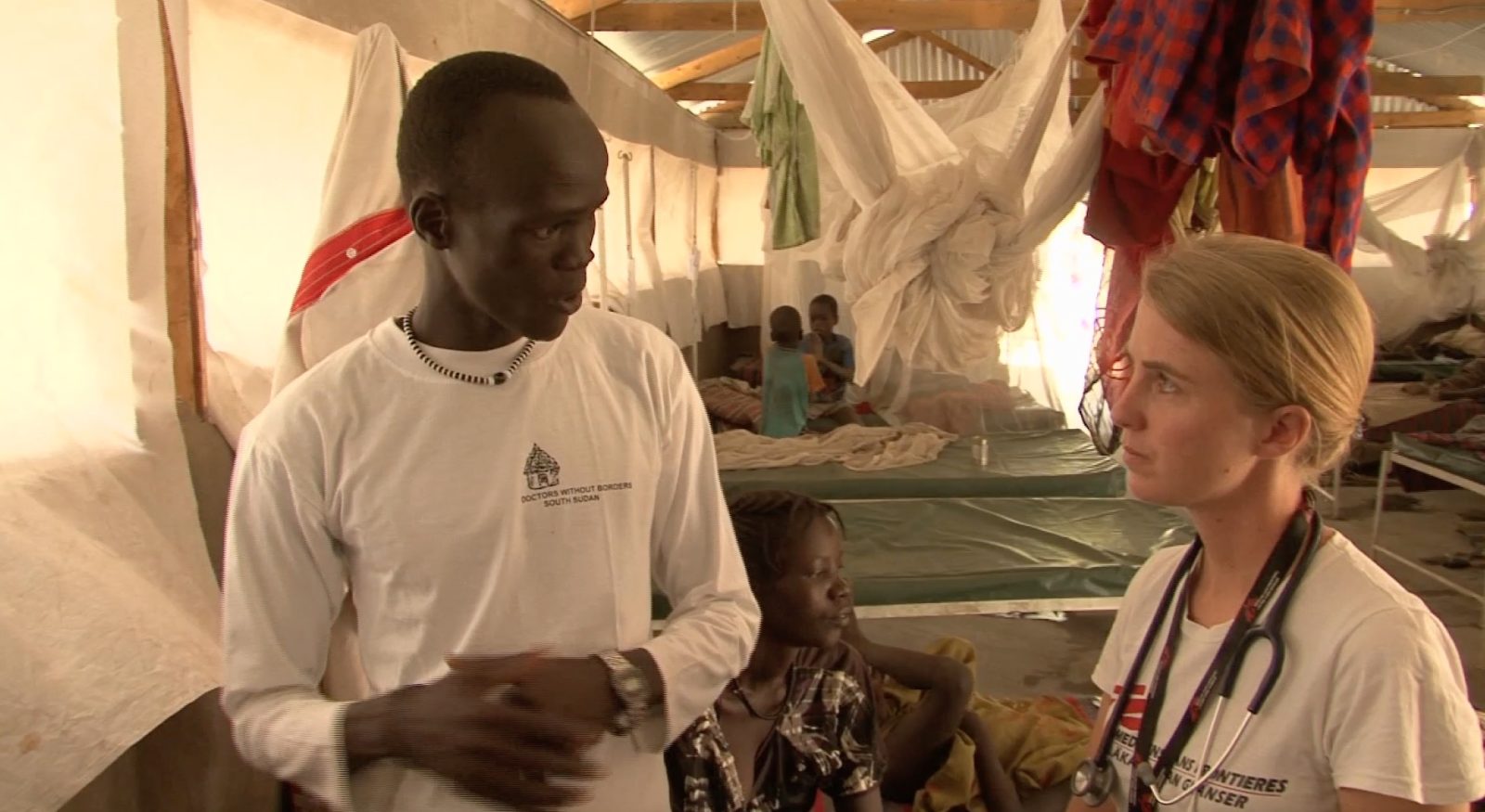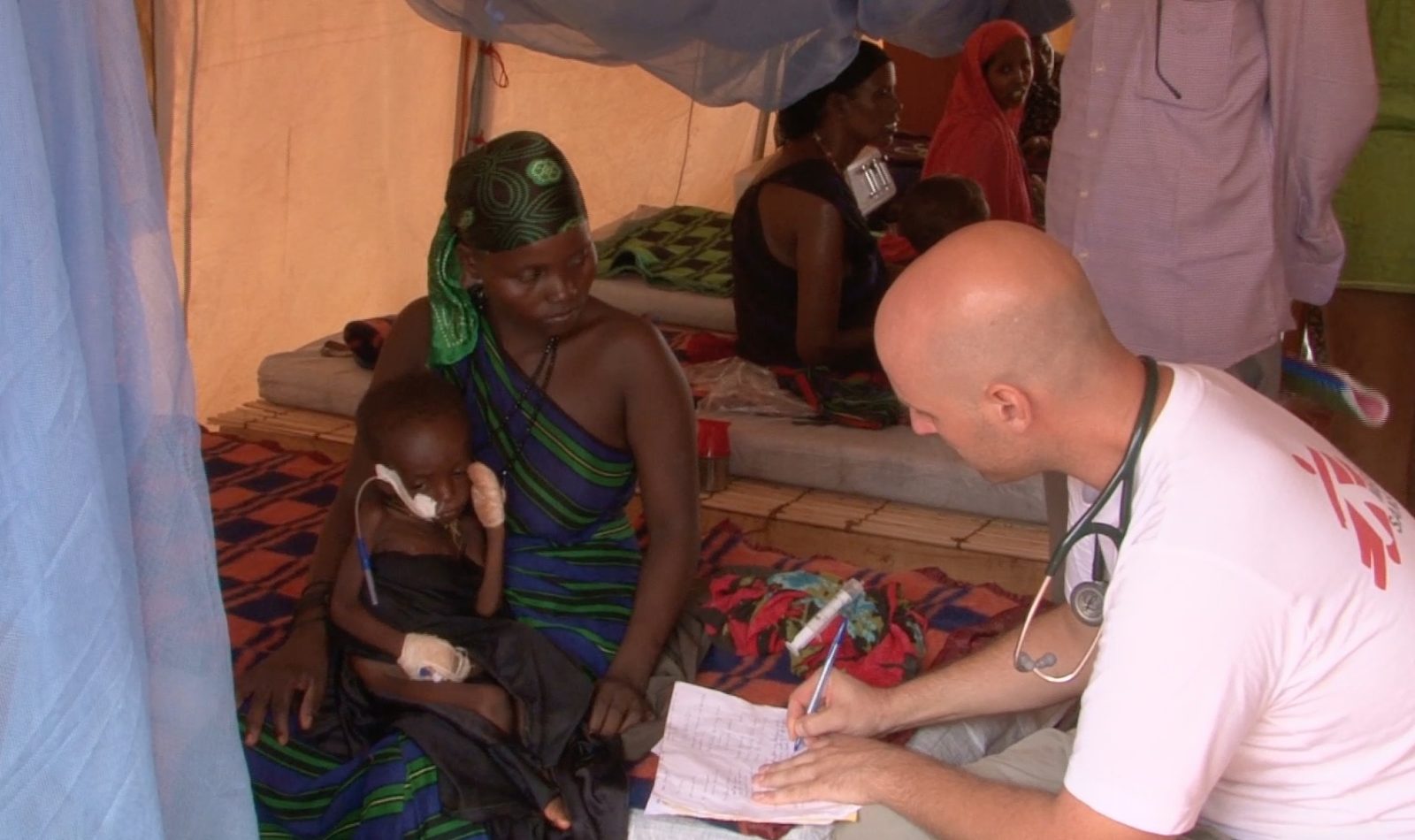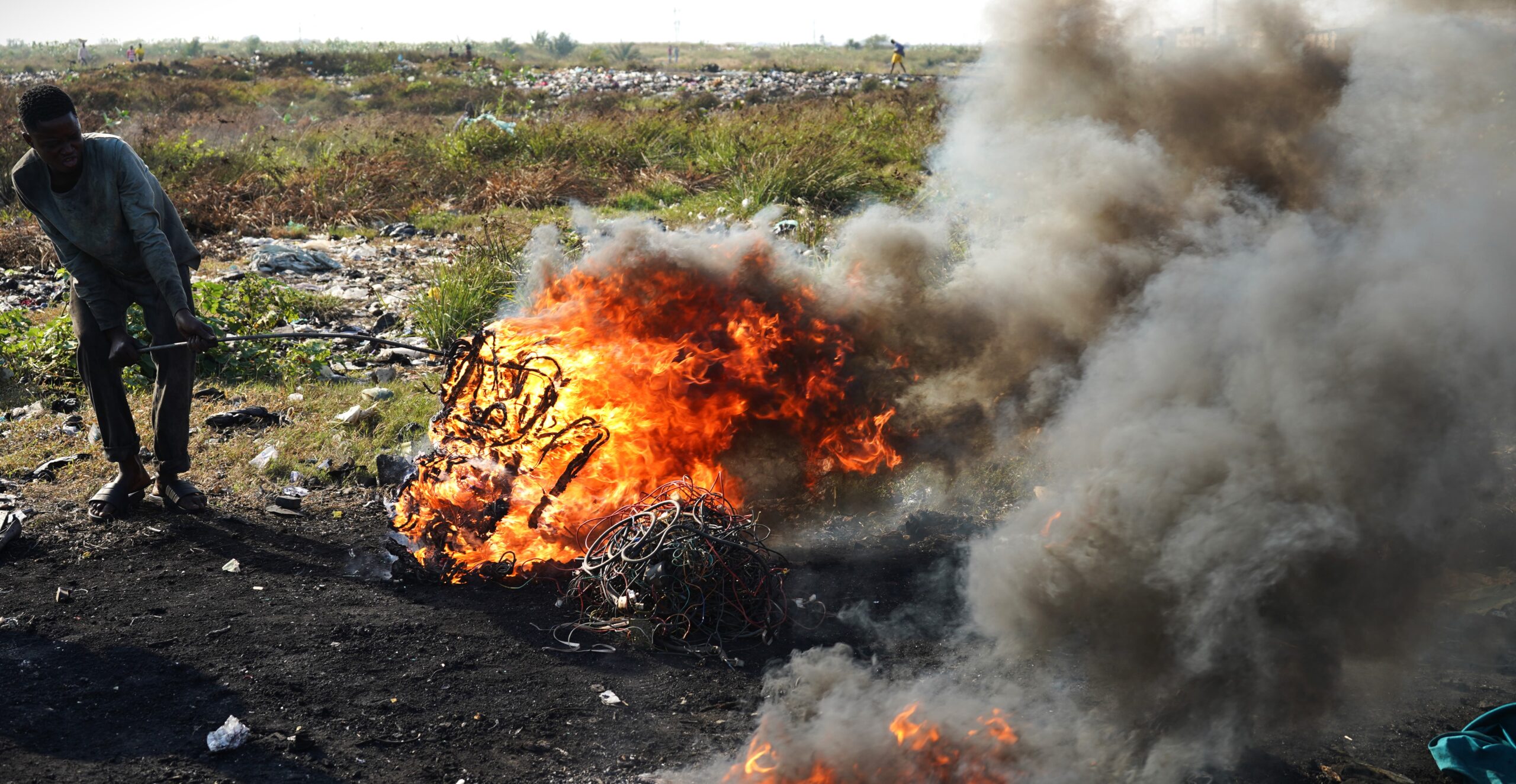JUDY WOODRUFF:As we reported earlier, the doctor in New York City with Ebola, Craig Spencer, contracted the virus while on a mission for Doctors Without Borders in Guinea.Tonight, special correspondent Fred de Sam Lazaro brings us a closer look at that organization and its oftentimes life-risking and lifesaving work.A version of the story aired on the PBS program “Religion & Ethics Newsweekly.”
FRED DE SAM LAZARO:They have been front and center, not just in the fight against Ebola, but in every humanitarian crisis in recent memory.Widely known by its French acronym, MSF, Doctors Without Borders is in hot spots of disease, natural disaster and war around the world, and on the front lines to get the international community to wake up to some of the world’s crises.
DR. JOANNE LIU, Medicins Sans Frontiers:Medicins Sans Frontiers has been ringing alarm bells for months, but the response has been too late, too little.
FRED DE SAM LAZARO:That’s MSF president Joanne Liu, who has been expressing growing frustration on Ebola to world leaders.
DR. JOANNE LIU:Today, Ebola is winning. The isolation center you have promised must be established now. There is today a political momentum the world has rarely, if ever, seen. As world leaders, you will be judged — you will be judged by how you use it.
FRED DE SAM LAZARO:Beyond medicine, MSF’s mission is to bear witness, to speak out. It goes back to its founding in 1971 by a group of French Red Cross volunteers working amid grave violence in Nigeria’s civil war.Sociologist Renee Fox wrote of their frustration in a book about the group.RENEE FOX, University of Pennsylvania: They pledged their commitment to not speak of what they saw in the field, very much in keeping with the professional confidentiality that physicians keep vis-a-vis their individual patients, and when they saw these abuses taking place came together with the conviction that there was something wrong with not speaking out.
FRED DE SAM LAZARO:Four decades later, MSF calls itself a movement. It has chapters in 24 mostly wealthy countries, and 25,000 people deployed around the world.Ninety percent are hired locally. Most are not doctors and nurses. They are construction, experts in logistics, in water, in sanitation. The teams move swiftly, as we saw in this 2008 report from a hurricane-ravaged Haiti.The construction workers aren’t finished yet, but the hospital work is already in full swing since it’s the only hospital now in Gonaives, a city of more than 200,000 people.One reason it can move quickly is MSF raises over a billion dollars a year, critically, with few strings attached.
RENEE FOX:Ninety percent of their finances come from people like you and me who make modest contributions or more than modest contributions to MSF.
SOPHIE DELAUNAY, MSF USA:We don’t need to wait for funding from a government to be able to react to a crisis.
FRED DE SAM LAZARO:And MSF USA’s Sophie Delaunay adds they don’t accept money from governments heavily involved in events, no U.S. funds work in Afghanistan, for example.But she admits the thinking has shifted in the Ebola epidemic, where MSF supports the U.S. military’s aid.
SOPHIE DELAUNAY:In principle, we really try to take as much distance as possible from military, but in these particular circumstances, we don’t want to be dogmatic. And we feel there is a value in taking a different position.
FRED DE SAM LAZARO:MSF’s reputation Drew Dr. Benjamin Levy to sign on for a six-month stint in 2011 in a field hospital in Ethiopia. Thousands of refugees were fleeing famine and civil war from neighboring Somalia.DR. BENJAMIN LEVY, Centers for Disease Control and Prevention: It was a place where sort of the idealism of medicine came to practice.
FRED DE SAM LAZARO:Levy, who now works for the Centers for Disease Control and Prevention, remembers a culture of debate.
DR. BENJAMIN LEVY:There was healthy debate as to what diseases we could treat, what diseases we didn’t have the capacity to treat, and where to take the programs that we were running as the emergency ended.
FRED DE SAM LAZARO:And before it begins working an emergency, particularly in war zones, MSF works to gain safety assurances from all factions.
SOPHIE DELAUNAY:You’re going to treat their brothers, their cousins, their family, et cetera. It’s a very good protection, actually. The second criteria that we use is, we want to be able to have an evacuation route.
FRED DE SAM LAZARO:MSF has evacuated from Afghanistan in 2004 for five years after two workers were killed, and from Somalia after two were kidnapped.It pulled foreign staff and closed a hospital in Syria after five workers were kidnapped. However, in recent conflicts like Burma, Sri Lanka and Yemen, MSF stayed on, agreeing not to criticize government policies it acknowledged were repressive.Bearing witness is complicated by the reality on the ground, says author Fox.
RENEE FOX:When they were young, they thought witnessing was an unmitigated virtue. As they matured, they came to see how complex the ramifications of witnessing might be.
FRED DE SAM LAZARO:They have learned to be politically pragmatic, she says, without being political.
JUDY WOODRUFF:Fred’s reporting is a partnership with the Under-Told Stories Project at Saint Mary’s University in Minnesota.
MSF: Médecins Sans Frontières
The New York doctor infected with Ebola was working in Guinea for Doctors Without Borders, a humanitarian organization that deploys specialists to provide medical help in crisis zones all over the world. Special correspondent Fred de Sam Lazaro offers a deeper look at the organization’s mission and the risks of its work.
Related Links:Doctors Without Borders

A Global Force
They have been front and center, not just in the fight against Ebola, but in hot spots of disease, natural disaster and war around the world, and on the front lines to get the international community to wake up to some of the world’s crises.







